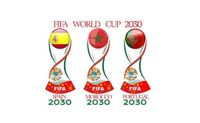Maria Tato, the head of the organizing committee for the 2030 World Cup in Spain, submitted her resignation on Wednesday, March 26, 2025, amid allegations of manipulating the criteria for selecting host cities, particularly favoring San Sebastian. This decision came on the heels of a report by the newspaper El Mundo, which revealed that the selection criteria for the tournament venues had been altered to prioritize the Anoeta stadium in San Sebastian, home to Real Sociedad, over the Balaídos stadium in Vigo, home to Celta Vigo.
The controversy surrounding Tato's resignation has drawn significant attention, especially from local officials. Abel Caballero, the mayor of Vigo, expressed his concerns on social media platform X, stating, "On June 25, 2024, Balaídos was among 11 potential locations. However, on June 27, the list was modified. This is extremely serious, and we demand an explanation of who made this change, why, and based on what criteria." Caballero's comments reflect the frustration felt by many in Vigo over what they perceive as an unfair change in the selection process.
The Spanish Football Association (RFEF) had previously announced that Spain would allocate 11 stadiums for the tournament, with Portugal and Morocco contributing three and six stadiums, respectively. The selection of venues for the World Cup, which is set to be the first hosted across three different continents, has been a topic of intense scrutiny and debate. The RFEF also hinted at the possibility of including Genoa in the reduced list of venues to compensate for the exclusion of Vigo.
In her resignation statement, Tato acknowledged the challenges faced during the selection process and emphasized the importance of transparency and fairness in such significant sporting events. She noted that the final ranking of the stadiums, which saw Anoeta surpass Balaídos, was determined collectively in a meeting attended by members of the committee. According to the RFEF, the scoring for Anoeta improved from 15 to 20, allowing it to secure a spot among the proposed venues.
The situation has not only raised questions about the integrity of the selection process but has also highlighted the ongoing turmoil within the Spanish Football Association. The organization has faced numerous crises over the past few years. Notably, former president Luis Rubiales resigned in September 2023 following a scandal involving a non-consensual kiss with player Jenni Hermoso during the Women's World Cup celebrations, after Spain won the title in Sydney. His successor, Pedro Rocha, was suspended for making decisions beyond his authority, leading to another leadership change with Rafael Lusan taking over in December 2024.
The Spanish public and media have been vocal about their concerns regarding the governance of football in the country, particularly in light of these recent events. The resignation of Tato adds another chapter to a tumultuous period for Spanish football, as the nation prepares for what is expected to be a historic World Cup.
As the dust settles from Tato's resignation, the RFEF faces the challenge of restoring confidence in its decision-making processes. The organization must address the concerns raised by Vigo's mayor and others who feel sidelined by the selection criteria changes. Transparency will be key in moving forward, especially as the World Cup approaches.
Looking ahead, the RFEF has reiterated its commitment to ensuring that all host cities are treated fairly and that the selection process remains transparent. With the World Cup just a few years away, the focus will now shift to how the association can navigate these challenges while preparing for the tournament.
The 2030 World Cup is not just a sporting event; it represents a significant opportunity for Spain, Portugal, and Morocco to showcase their cultures and hospitality to the world. As preparations continue, all eyes will be on the RFEF to see how they handle the fallout from this controversy and what steps they will take to ensure a successful tournament.





